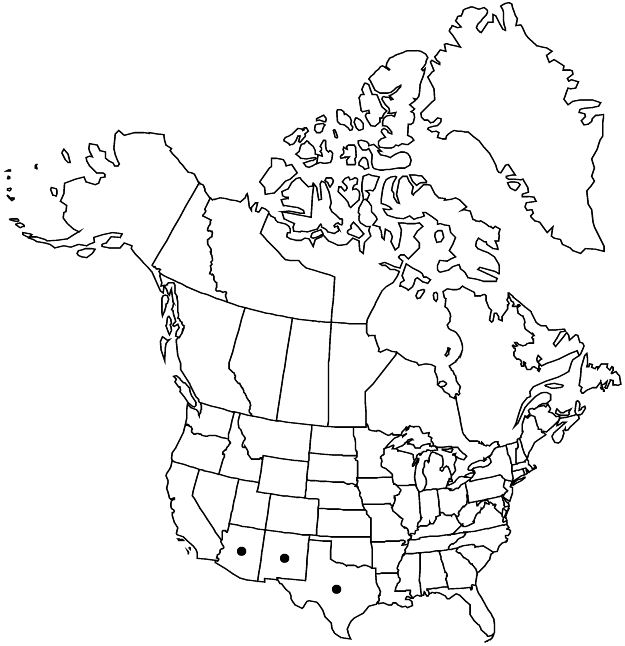Difference between revisions of "Acalypha phleoides"
Anales Hist. Nat. 2: 139. 1800.
FNA>Volume Importer |
FNA>Volume Importer |
Revision as of 18:17, 24 September 2019
Herbs, perennial, 2–5 dm, monoecious. Stems erect, short-pubescent and hirsute. Leaves: petiole 0.2–1 cm; blade rhombic-ovate to ovate, or proximal suborbiculate, 2–6 × 1–3 cm, base acute to rounded, margins serrate to crenate-serrate, apex acute to acuminate. Inflorescences bisexual, terminal; peduncle 0.3–0.5(–1) cm, pistillate portion 4–7 × 1.6–2 cm, staminate portion 0.5–3.5 cm; allomorphic pistillate flowers rarely present, replacing all or part of staminate portion of inflorescence. Pistillate bracts (normal flowers) loosely arranged (inflorescence axis visible between bracts), 8–12 × 7–11 mm, abaxial surface sparsely pubescent and stipitate-glandular; lobes (3–)5–7(–8), triangular to attenuate, 1/5–1/3 bract length or terminal lobe longer; of allomorphic flowers absent. Pedicels of allomorphic flowers 3–5 mm. Pistillate flowers: pistil 3-carpellate (normal flowers), 2-carpellate (allomorphic flowers); styles multifid or laciniate. Capsules muricate, pubescent; allomorphic fruits obovoid, 2 × 1.5 mm, muricate, pubescent. Seeds 1.5–2 mm, minutely pitted. 2n = 40 (Mexico).
Phenology: Flowering and fruiting spring–fall.
Habitat: Rocky areas, grasslands, oak, pine, or juniper woodlands.
Elevation: 100–2600 m.
Distribution

Ariz., N.Mex., Tex., Mexico, Central America (Guatemala).
Discussion
Plants from the United States have nearly always been called Acalypha lindheimeri, distinguished from A. phleoides on the basis of leaf shape and bract lobing. Although plants from Texas generally can be distinguished from plants from central Mexico southward, plants from intervening regions in the United States and Mexico include a full range of intermediates (G. A. Levin 1999b).
Selected References
None.